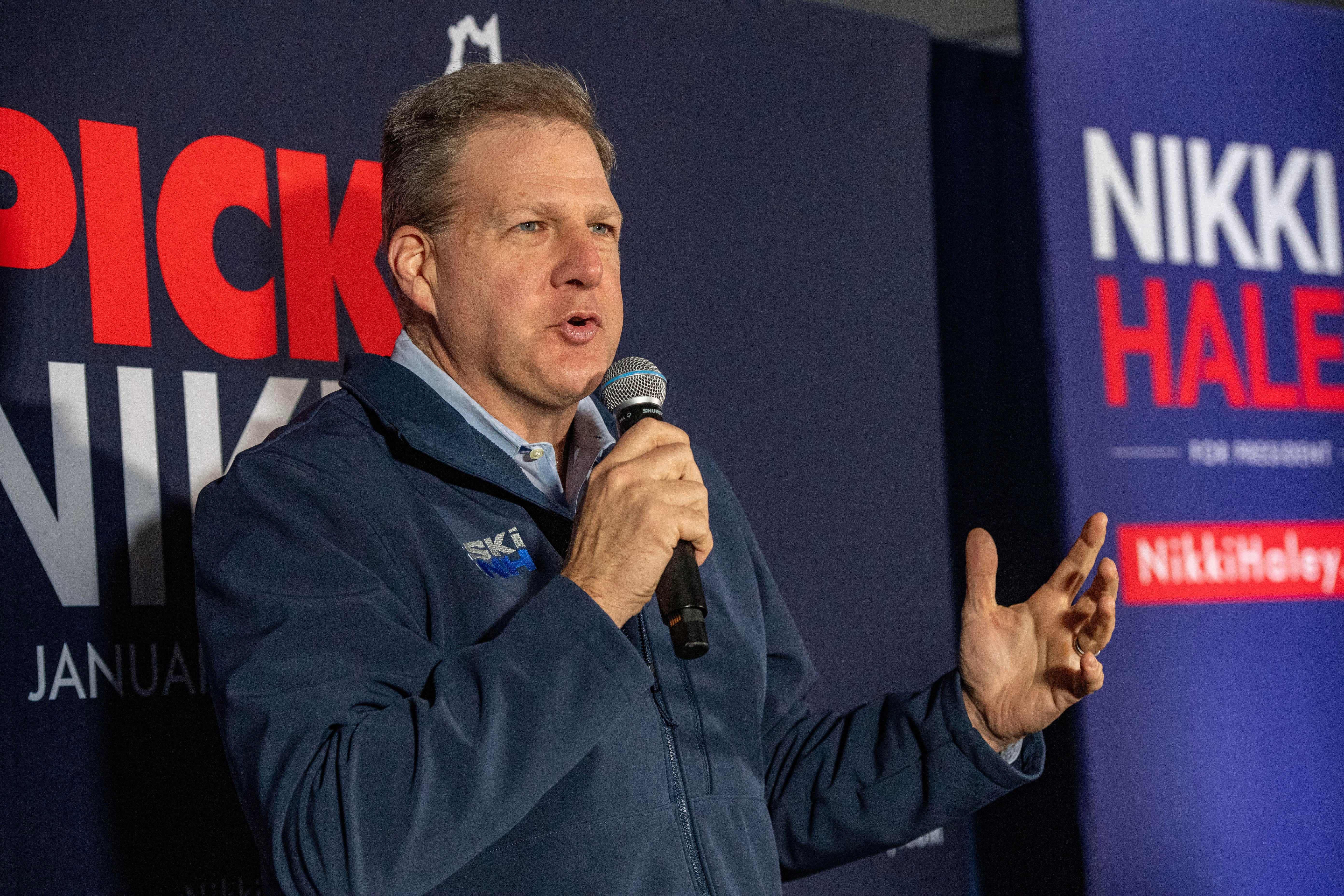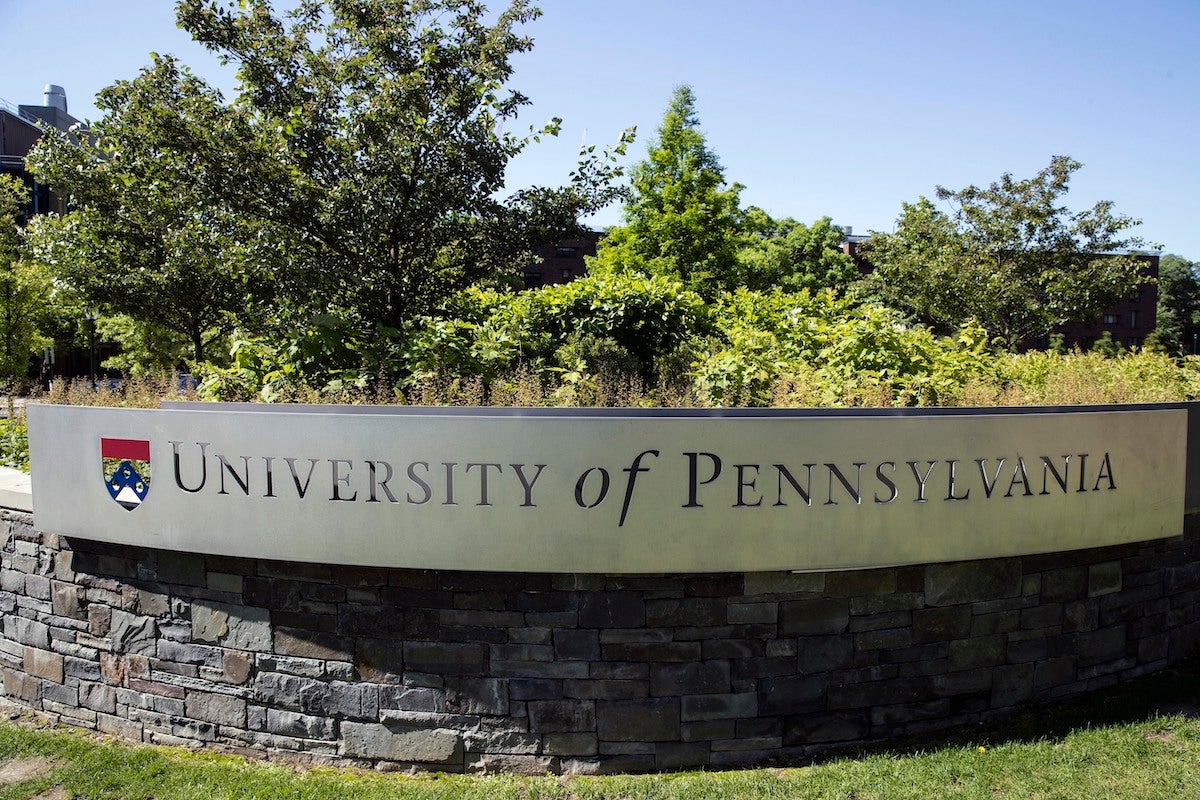New Hampshire
New Hampshire governor says Musk is too rich to be affected by conflicts of interest

Republican New Hampshire Governor Chris Sununu is facing sharp criticism after suggesting that Elon Musk is too rich to be affected by possible conflicts of interest.
Sununu appeared on CNN’s State of the Union Sunday when he was asked if Musk has any conflicts of interest being the owner of companies such as SpaceX which have held government contracts worth billions while also heading an outside commission charged with leading efforts to cut government spending.
“I like the fact that he’s, in a way, so rich [that] he’s removed from the potential financial influence,” Sununu claimed.
Musk, who also leads the electric car maker Tesla, spent about a quarter of a billion dollars of his fortune, estimated to be about $430 billion, to help Trump win the White House.
“I don’t think he’s doing it for the money,” Sununu added. “He’s doing it for the bigger project and the bigger vision of America. He doesn’t need the dollars.”
Sununu immediately faced a deluge of criticism for his comments.
In a column for MSNBC, author and producer Steve Benen wrote: “Let me see if I have this straight … Americans shouldn’t be overly concerned about the president-elect empowering a billionaire GOP megadonor with power and influence, a businessman with extensive private-sector interests here and abroad, and we should be indifferent to the potential for the megadonor’s conflicts of interest?”
He added: “Why? Because, according to Sununu, … the world’s wealthiest person isn’t overly concerned about making money?”
Sununu, who was trashed by Trump for backing former UN Ambassador Nikki Haley during the Republican primary, called Trump “f****** crazy” in 2022 during a Washington roast.

Benen argued that Sununu had “tried and failed to defend Trump describing Americans he disagrees with as ‘the enemy within’” and to “defend Trump amid reports that he said in private that he wished he had military generals like the ones who served Adolf Hitler.”
“Sununu found himself in the unenviable role of trying to defend the indefensible in order to bolster the man who had spent the year mocking and scolding him,” he added.
George W Bush White House Ethics lawyer Richard Painter wrote on X: “Is this the new normal? Billionaires are too rich to have conflicts of interest. Bull.”
Democratic New Hampshire State Representative David Meuse also took to X to slam Sununu.
“According to @GovChrisSununu, if you happen to be the world’s wealthiest biological organism, your motives can no longer be questioned — even if you donated $277 million in campaign contributions to Trump and other GOP pols to secure your seat at the table,” he said.
Meanwhile, Republican strategist Jeff Timmer wrote that the governor “has learned that once you jettison all honor and integrity by digging a hole of relativism you might as well keep digging.”

New Hampshire
Young Boy Killed in Horrific Ski Accident On New Hampshire Mountain

While on an innocent New Year’s Eve ski trip at Cranmore Mountain in New Hampshire, a 12-year-old boy was tragically killed in an accident on the mountain.
According to authorities, the young boy was skiing down the Bandit Trail, a route for intermediate skiers, shortly before 11:00 a.m. when the incident occurred.
Witnesses reported the incident, and the North Conway Fire and Rescue team deployed to assist. Upon their arrival, the boy was unconscious and had already been transported to the mountain’s base. Although CPR was performed by the Cranmore Ski Patrol team, all efforts were unsuccessful.
He was then brought to the MaineHealth Memorial Hospital in North Conway via ambulance.
Due to the extent of his injuries, the boy was unable to recover and passed away while in the hospital.
The National Ski Areas Association (NSAA) 2024 Fatality Fact Sheet states, “The primary cause of fatal incidents are collisions with trees and the snow surface itself. Collisions with trees were the major cause of fatalities during the 2023/24 season, making up nearly half of all fatalities.”
Cranmore mountain is situated in North Conway, a village in New Hampshire widely known for its outdoor recreation. The White Mountains, home of the northeast’s highest peak, Mt. Washington, are only thirty minutes from where the boy was skiing.
The boy’s name has not been released to the public at this time. An investigation is in progress.
“On behalf of Cranmore Mountain Resort, our thoughts and prayers go out to the family,” a spokesperson from Cranmore Mountain said in a statement. “The entire Cranmore family grieves this tragic loss.”
Christopher Mattei, Conway Police Chief, also released a statement expressing condolences.
“On behalf of the Conway Police Department, and all the first responders who assisted, I would like to offer my deepest condolences to the family members of thee 12-year-old boy,” he wrote.
New Hampshire
Pet squirrels and racoons? N.H. lawmakers say some may be OK – The Boston Globe

After learning about the fate of Peanut and Fred, Representative James Spillane took action to make sure their story isn’t repeated in the Granite State. This legislative session, the Deerfield Republican is proposing legislation that would allow the ownership of some squirrels and raccoons.
“It gave a black eye to New York and we don’t need to get a black eye in New Hampshire,” he said.
“My fear is somebody’s going to move into the state with a pet, and we’re going to tell you, ‘You can’t get veterinary care, and you’ve got to pretend you don’t have that pet,’” he said.
Spillane said his bill, which has the backing of several other Republican lawmakers, provides two paths to legal ownership of pet raccoons and squirrels, including for people who move into New Hampshire from states that permit the animals as pets, and allowing them to become pets after being rehabilitated by NH Fish and Game.
But, Spillane said, his bill stops short of making all ownership of pet raccoons and squirrels legal. It still wouldn’t allow people to purchase the animals at a pet store, to breed them, or to capture them from the wild.
“We’re in the same position with these as we were with ferrets about 15 years ago,” Spillane said.
Raccoons and squirrels aren’t the only critters lawmakers are eyeing in 2025. A proposal from
Democratic Senator Donovan Fenton of Keene would proclaim the Virginia opossum as New Hampshire’s official state marsupial.
The nocturnal critter, which is already the official state marsupial of North Carolina, can be found in New Hampshire and throughout much of North America.
This story first appeared in Globe NH | Morning Report, our free newsletter focused on the news you need to know about New Hampshire, including great coverage from the Boston Globe and links to interesting articles from other places. If you’d like to receive it via e-mail Monday through Friday, you can sign up here.
Amanda Gokee can be reached at amanda.gokee@globe.com. Follow her @amanda_gokee.
New Hampshire
Opinion: The untold story of DES’ new landfill siting rules

Eliot Wessler lives in Whitefield and works with a number of grassroots organizations in New Hampshire’s North Country.
New Hampshire’s Department of Environmental Services (DES) has the responsibility to balance the interests of landfill developers and the public. But the agency, under the thumb of outgoing Gov. Sununu, has leaned heavily in favor of the solid waste industry for years, and the New Hampshire legislature has too often gone along.
DES’ new landfill siting rules were approved at the Dec. 19 JLCAR (Joint Legislative Committee on Administrative Rules) hearing. DES provided JLCAR with just enough half-truths that it was able to ram home a version of the rules that was heavily influenced by landfill developers.
The stink from that hearing hasn’t abated. The written testimony in advance of the hearing consisted of virtually unanimous objection from scientists and crickets from the industry. As for the hearing, the 15-20 people who showed up to provide testimony opposed to DES’ rules were denied an opportunity to testify by an administrative maneuver engineered by two of the ten JLCAR members.
Given everything we now know about the risks of PFAS contamination from landfills, including the contamination of public water supplies near Pease, the hundreds of incidents of leachate mismanagement at Casella’s NCES landfill in Bethlehem, and Casella’s hubris in trying to push through permit applications to build a brand new mega-landfill (the GSL project), it’s appalling that DES’ new rules make it easier for landfill developers to build landfills wherever they want.
The most egregious thing DES did was to weaken the hydraulic conductivity standard compared to its original proposal. The industry lobbied DES to make the change, arguing that the stronger standard would make siting landfills harder. DES caved, despite overwhelming evidence that the weaker standard dramatically increased the risk of landfill contamination, and with no countervailing evidence that a stronger standard would prevent siting new landfills.
So now we’re stuck. DES’ standard is far weaker than the standard used in both Maine and Vermont. Moreover, it is weaker than all U.S. states that have such standards, as well as many foreign countries, including countries with extremely lax environmental rules such as India.
DES is required by administrative rules, enforced by JLCAR, to make decisions on the merits of the available evidence. In weakening the conductivity standard, DES offered assertions to JLCAR but provided no evidence that the conductivity standard weakening was based on merit. In fact, the evidence presented to JLCAR seems to confirm that DES reverse-engineered the standard so that permits for Casella’s GSL project could be greenlighted:
■DES argued that the old rules did not have a hydraulic conductivity standard, so the new rules are ipso facto more protective. That defies logic given that the standard is set so low that it virtually provides a permission structure for landfills to be sited in highly permeable soil.
■DES disowned a DES-sponsored soil permeability map that showed some 85% of the state has more suitable soils for landfill siting than the GSL site. But having disowned the map, DES produced no data or evidence of any kind regarding the distribution of soil permeability in New Hampshire.
■In DES’s own words, “NHDES staff asked other concerned members of the regulated community to provide information and documents to demonstrate …foreclosing… the siting of any new landfill or the expansion of any existing landfill, but the department did not receive any supporting documentation.”
■On the same subject, in DES’ own words, “Other commenters including several industry representatives commented that the initial values…would make it very difficult to site new landfills or to expand the existing landfills in the state. One industry representative referenced a statewide study that had been conducted for a private client that they claim showed this result. The representative was unwilling to share the document.”
With JLCAR’s acceptance of DES’ Section 800 rules revisions, DES may have won a pyrrhic victory. Outgoing Gov. Sununu is just about the last public official to think GSL is a good idea, and he will be remembered by many as a cheerleader for unneeded large engineering projects, including the albatross that is the Seabrook nuclear plant, and the ill-conceived Northern Pass transmission project.
With the inauguration of Governor-elect Ayotte in a few weeks, DES will be under new management. She has said that under her watch New Hampshire will modernize its landfill management practices, will not become the solid waste dump for all of New England, and that the GSL project will not happen.
In addition, given the heightened awareness in the New Hampshire legislature of the dangers from landfills, as well as heightened awareness that DES historically has not done nearly enough to faithfully fulfill its mission to protect public health and welfare, there is hope that through new legislation and tougher oversight, DES will be encouraged (or maybe forced) to re-focus on its mission.
-
/cdn.vox-cdn.com/uploads/chorus_asset/file/25672934/Metaphor_Key_Art_Horizontal.png)
/cdn.vox-cdn.com/uploads/chorus_asset/file/25672934/Metaphor_Key_Art_Horizontal.png) Technology1 week ago
Technology1 week agoThere’s a reason Metaphor: ReFantanzio’s battle music sounds as cool as it does
-

 Business1 week ago
Business1 week agoOn a quest for global domination, Chinese EV makers are upending Thailand's auto industry
-

 Health5 days ago
Health5 days agoNew Year life lessons from country star: 'Never forget where you came from'
-
/cdn.vox-cdn.com/uploads/chorus_asset/file/24982514/Quest_3_dock.jpg)
/cdn.vox-cdn.com/uploads/chorus_asset/file/24982514/Quest_3_dock.jpg) Technology5 days ago
Technology5 days agoMeta’s ‘software update issue’ has been breaking Quest headsets for weeks
-

 World1 week ago
World1 week agoPassenger plane crashes in Kazakhstan: Emergencies ministry
-

 Politics1 week ago
Politics1 week agoIt's official: Biden signs new law, designates bald eagle as 'national bird'
-

 Business2 days ago
Business2 days agoThese are the top 7 issues facing the struggling restaurant industry in 2025
-

 Politics1 week ago
Politics1 week ago'Politics is bad for business.' Why Disney's Bob Iger is trying to avoid hot buttons















